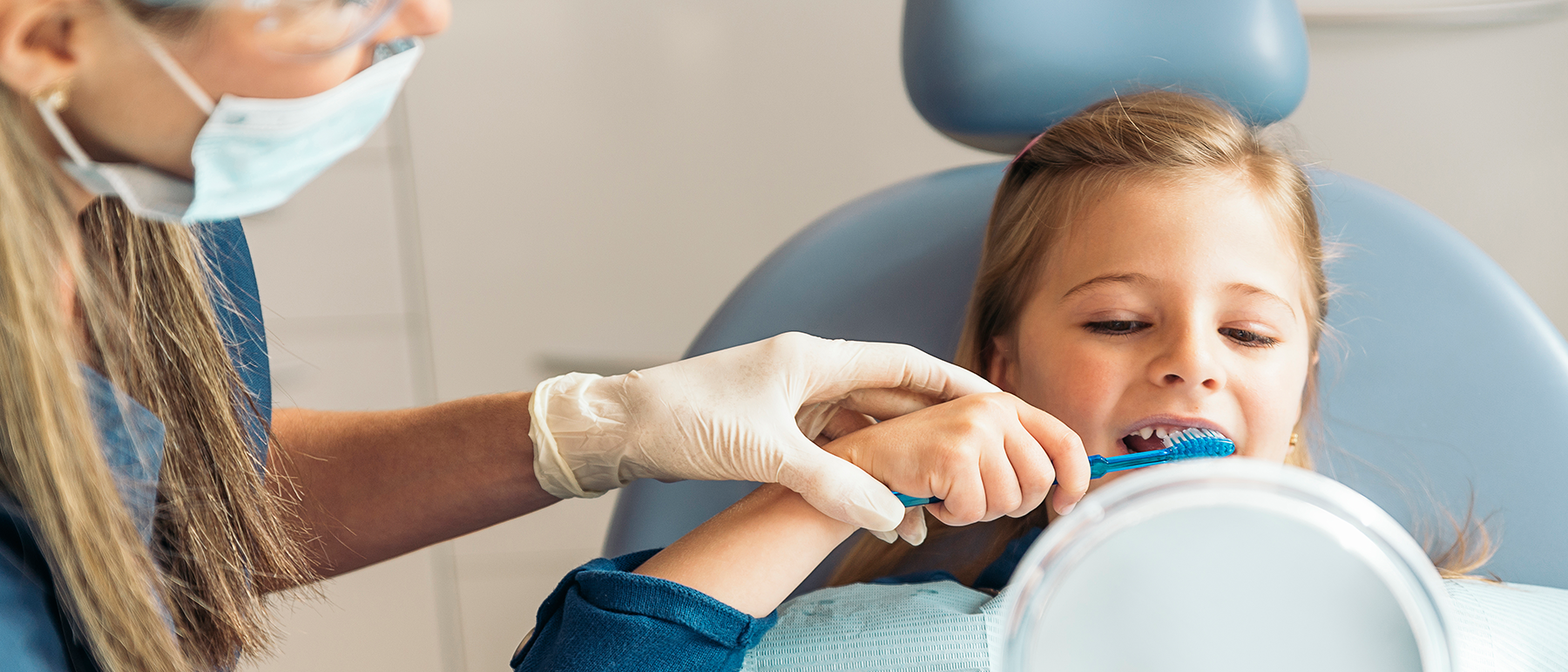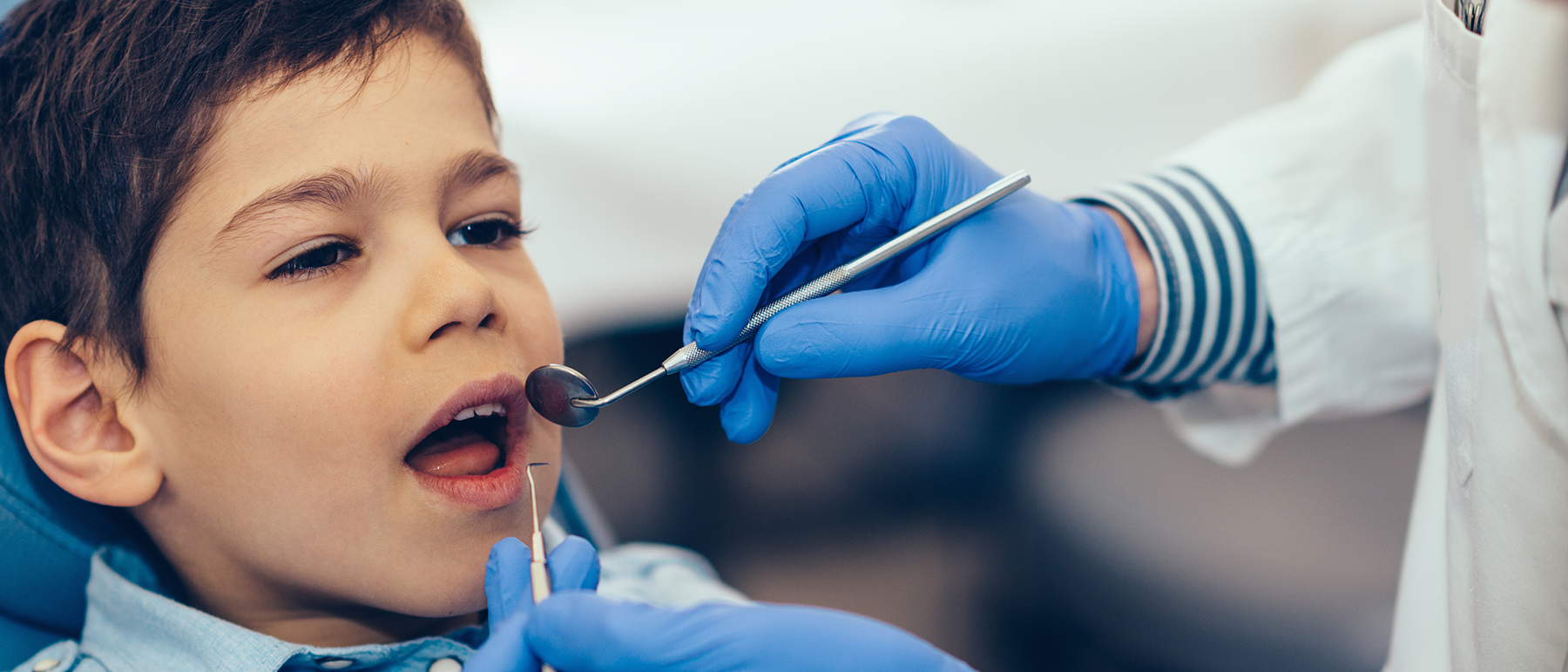Is your little one experiencing dental anxiety? What your child needs is a positive and caring experience with a dentist.
At Smile Place Dental, you can ensure your child's teeth and wellbeing are in good hands. Our friendly and gentle dentists provide safe and compassionate dental services, making every visit a positive experience for your little ones.
Contact us for exceptional child dental care that puts parents' minds at ease.
Aside from the well-known concerns of tooth decay and cavities, children frequently experience other dental health challenges such as:
Many parents may be surprised to discover that their child could suffer from what they thought was an “adult” issue like gum disease. However, it’s important to note that conditions such as gingivitis and gum disease can affect individuals of any age group, including children.
Factors like inadequate oral hygiene and a poor diet, which are known risk factors for adults, are equally, if not more, problematic for children.
Scheduling regular dental check ups for your child gives you the opportunity to identify these risks early. Our dentists will be able to recommend the appropriate care and provide the necessary treatment.

Your child’s mouth changes frequently during their early years. We take every step to ensure your child’s first experience with a dentist is a positive one which is a vital step to developing a good lifelong approach to dental hygiene and to maintain a healthy smile.
If your child has a fear of going to the dentist, then come and see us. Not all dentists can treat children effectively and the best dentists for children do so in a friendly manner by having a sense of humour, a focus on fun and being patient.
At Smile Place Dental we pride ourselves at being excellent with children.
Your child’s mouth changes frequently during their early years, so it's important to ensure healthy tooth development from a young age.
We recommend scheduling your child’s first dental check-up around their first birthday. Regular visits, ideally every 6-12 months, are crucial to monitor and maintain oral health, allowing for the prevention and early management of potential issues.
If your child has a fear of going to the dentist, come and see us. Not all dentists are experienced in treating children effectively. The best dentists for children do so in a friendly manner by having a sense of humour, a focus on fun, and by being patient.
At Smile Place, we take every step to ensure your child’s first experience with a dentist is a positive one which is a vital step to developing a good lifelong approach to dental hygiene and to maintain a healthy smile.

A child’s dental visit involves a systematic approach to ensure thorough examination and treatment of any oral health issues. Here’s what the journey might look like for your child:
The session begins with a dental history review, where the dentist queries about the child’s past dental experiences, current issues, and daily oral hygiene practices.
The dentist then conducts a dental examination, inspecting the child’s teeth, gums, and mouth to identify any signs of decay, disease, or other dental problems.
The child’s teeth are professionally cleaned to remove any plaque or tartar buildup that could cause dental issues if left untreated. Fluoride treatment is usually applied after cleaning to reinforce the teeth and prevent cavities.
At this point, an X-ray may be taken if necessary, based on the child’s age and dental health. This helps detect hidden issues like cavities or problems with tooth roots. Dental sealants may also be applied, especially for children with permanent molars, to protect these teeth from decay.
The child will receive oral hygiene instruction from the dentist or hygienist, educating them on effective brushing and flossing techniques to maintain good oral health.
The dentist will also engage in a discussion and planning session with the parent or guardian, outlining any identified dental issues, recommending treatments, and scheduling the next checkup.
Lastly, the dentist will provide post-visit care guidance, including advice on diet, managing any post-procedure discomfort, and maintaining oral hygiene at home. This comprehensive approach ensures the child’s oral health is carefully monitored and maintained.
While we’ve answered a few frequently asked questions below, every smile is unique. If you’d like tailored advice or have something specific in mind, we invite you to book a complimentary consultation. We’ll take the time to understand your needs and guide you with care and expertise.
In Australia, tooth decay is the most prevalent dental issue among children. According to the Australian Institute of Health and Welfare (AIHW), over 40% of children aged 5-10 have experienced decay in their baby teeth. This high incidence can be attributed to several factors, including dietary habits, inadequate oral hygiene practices, and limited access to dental care in some regions.
During the initial stages, teeth may exhibit white, chalky spots, while in more advanced stages, brown or black areas can develop. The primary teeth in the upper front region are frequently affected by this condition. Alternative terms used to describe this condition include ‘nursing bottle caries’, ‘infant feeding caries’, and ‘baby bottle decay’. Once tooth decay in toddlers has progressed beyond the demineralisation stage, it cannot be reversed. However, it can be effectively treated and managed to prevent further deterioration.
Rotten teeth in toddlers are primarily caused by bacteria and the presence of carbohydrates (sugars and starches) that are not adequately cleaned off the teeth. When foods like milk, soda, raisins, candy, cake, fruit juices, cereals, and bread are left on the teeth, the bacteria in the mouth metabolize them and produce acids that lead to tooth decay.
When a child develops a cavity, it is necessary to schedule a dental appointment. The dentist will address the cavity by performing a filling procedure, which is also referred to as a restoration.
Once tooth decay in toddlers has progressed beyond the demineralization stage, it cannot be reversed. However, it can be effectively treated and managed to prevent further deterioration.
When a child develops a cavity, it is necessary to schedule a dental appointment. The dentist will address the cavity by performing a filling procedure, which is also referred to as a restoration.
Dental X-rays are an important diagnostic tool that allows us to detect dental issues that may not be visible during a visual examination. We only recommend X-rays when necessary and take precautions to minimise radiation exposure.
Dental sealants are a preventive treatment that can help protect your child's teeth from decay. We may recommend sealants for children who are prone to cavities or have deep grooves in their teeth.
Orthodontic treatment may be recommended for children with misaligned teeth or bite issues. During regular dental check-ups, we will assess your child's orthodontic needs and discuss treatment options if necessary.

Phoebe is also dedicated to enhancing children’s oral health and wellbeing, having worked in public dental programs for school-aged children.

Dr Atousa Moradi continues to stay committed and up to date within dentistry, to always provide excellent dental care and comfort to patients of all ages.

Chandra is one of our highly skilled and experienced dentist who provides the highest quality of dental care to patients of all age.

Mariam’s main focus and interest is the prevention and management of gum disease and maintaining overall good oral health.

Dr Thomas Brookes is passionate about all areas of dentistry, particularly preventative and restorative.

Joanna enjoys taking the time to know and understand her patients concerns, ideas and requests as she creates a treatment plan.